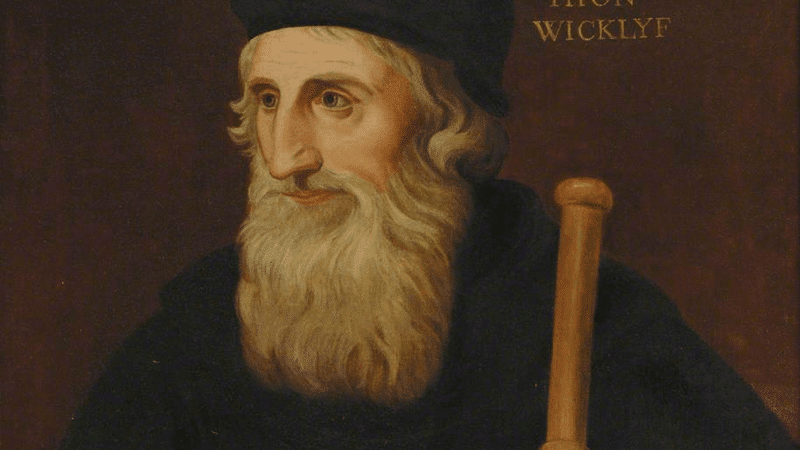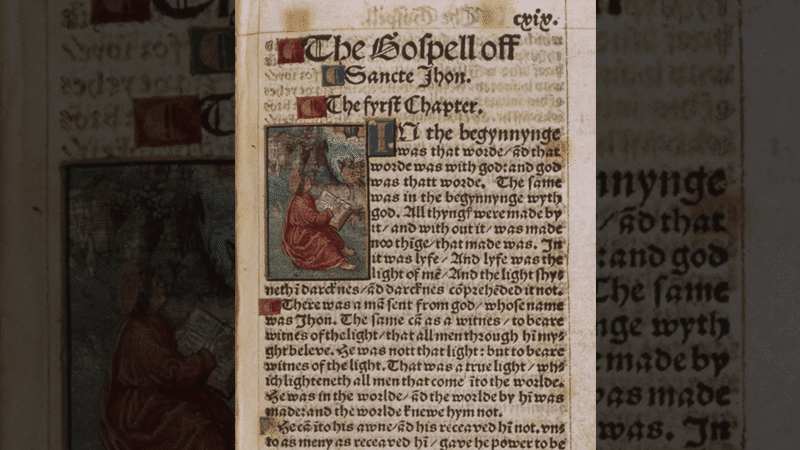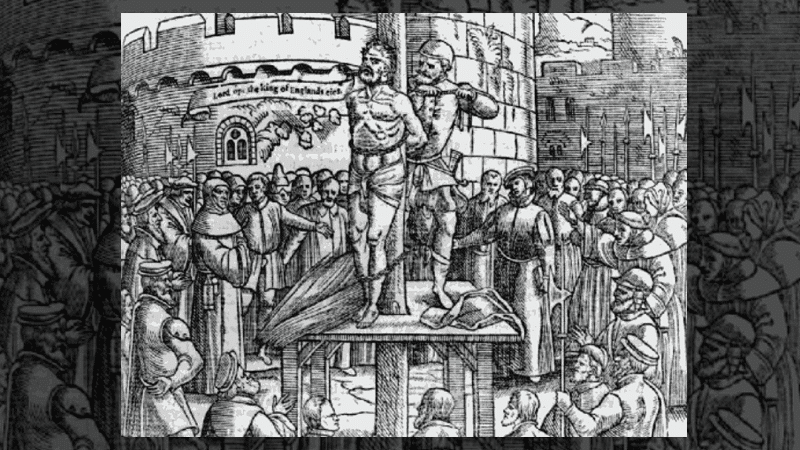I – God’s Word: ‘Sola Scriptura’

This month marks 500 years of the Reformation. In a four-part series Dr Sharon James, Social Policy Analyst for The Christian Institute, tells its riveting story, and why it’s still relevant today.
By the Middle Ages, a multitude of unbiblical traditions were taught by the Church. You had to keep coming back to the Church for grace, by means of the sacraments. The Church had your salvation in its power. You could never know full certainty about salvation.
The tragedy was that this obscured the free offer of the Gospel.
Death was an ever present reality. Between 1347 and 1348, two-fifths of the population of Europe died of the plague. Everyone feared judgement after death. Instead of offering hope, the Church kept people locked in lack of assurance and fear of death.
At this time, the universally used Bible was the Latin Vulgate. Only clergy and theologians had access to it. They interpreted Scripture for ordinary people.
John Wycliffe (1320-1384), Oxford’s leading theologian and philosopher believed that all Christians should have access to the Bible for themselves. He and his followers translated the Latin Vulgate Bible into English. The first hand copied Bibles were made available in 1380.
Preachers were sent out to spread the Gospel in the villages. Those who accepted Wycliffe’s ideas were derided as ‘Lollards’ (or ‘ignorant mutterers’).
After Wycliffe’s death in 1384, portions of his Bible continued to be circulated, despite efforts to suppress it. One church leader wrote:
Christ gave His Gospel to the clergy and the learned doctors of the church . . but Wycliffe, by thus translating the Bible, made it the property of the masses, and common to all, and more open to the laity, and even to women . . . And so the pearl of the Gospel is thrown before swine and trodden underfoot. The jewel of the clergy has been turned into the sport of the laity.
Wycliffe’s teaching powerfully impacted John Hus of Prague (1369-1415). And Hus’s influence, in turn, spread far beyond his native Bohemia. A hundred years later, Luther was heard to say: ‘we are all Hussites now!’
Spread of the Reformation
Despite opposition, throughout the fifteenth century believers in England, Bohemia and other countries in Europe persisted reading the forbidden Scriptures. By this time the corruption and greed of the church hierarchy could not be ignored. There were ever-louder calls for reform.
Also by this time the Renaissance was impacting Europe. Before the fall of Constantinople to the Turkish Empire in 1453, significant numbers of precious early manuscripts, including Hebrew and Greek manuscripts of the Bible, were smuggled out of the city and spread across Europe. These were now available for scholars for the first time in centuries.
In 1516, a leading scholar, Erasmus, published a complete edition of the Greek New Testament. Access to the Bible in the original language exposed the fact that many key teachings of the Roman Catholic Church had rested on the unreliable Vulgate translation.
For example, when John the Baptist called people ‘to repent’, the Vulgate read ‘do penance’. This mistranslation underpinned the whole sacramental system!
‘Boy driving a plough’
Johannes Guttenberg designed the first commercially viable printing press, and printed the first Bible in Germany in 1455. This invention was a key factor in the spread of reformation throughout Europe.
Scriptures were translated and printed into German (1466); Italian (1471); Czech (1475); Dutch (1477); Spanish Catalan (1478); Bohemian (1488); Danish and Swedish (1524); English, Tyndale’s New Testament (1526); Swiss-German (1529); Polish (1553); Icelandic (1584); Welsh (1588); and Hungarian (1590).
In 1509 Henry VIII acceded to the throne of England. It was still forbidden to read the Bible in English. In 1519 six men and one woman were burned to death in Coventry for the crime of teaching their children the Lord’s Prayer and Ten Commandants in English.
In the face of this hostility a young scholar called William Tyndale declared to a clergyman in 1521: ‘If God spare my life, I will cause a boy that drives the plough to know more of the Scripture than you do!’
He resolved to translate the Bible into English direct from the Hebrew and Greek texts. This was illegal, so he escaped to the continent and worked in secret. In 1526, 6,000 copies of the English New Testament were smuggled into England.
Those caught distributing them were burned at the stake. Despite this, Tyndale moved straight onto translating the Old Testament.
In 1530 Henry VIII repeated the order that all English Bibles should be destroyed.
In 1535 William Tyndale was arrested in Antwerp. He was strangled and burned at the stake in 1536. His dying words were: ‘Lord, open the King of England’s eyes!’
Two years later Henry VIII gave permission for the publication of the English Bible.
The Reformation was not just a ‘top-down’ movement. It was a movement of spiritual revitalisation which came from the recovery of the living word of God. People could read it for themselves without any censorship by the Church or mediation by a priest. As they did so, they discovered that Purgatory, spoken confessions, acts of penance could not be found in Scripture!
Instead, they discovered the good news of justification for sinners on the basis of Christ’s finished work, memorably described by Tyndale as:
Good, merry, glad and joyful tidings that maketh a man’s heart glad and maketh him sing, dance and leap for joy.
This is an abridged version of a talk given by Dr Sharon James at Word Alive 2017, the full transcript including footnotes is available here: www.reformation-today.org/articles-of-interest/the-reformation-rediscovering-the-power-of-the-gospel-a-series-of-papers-by-dr-sharon-james-presented-at-the-word-alive-conference-2017-part-i





